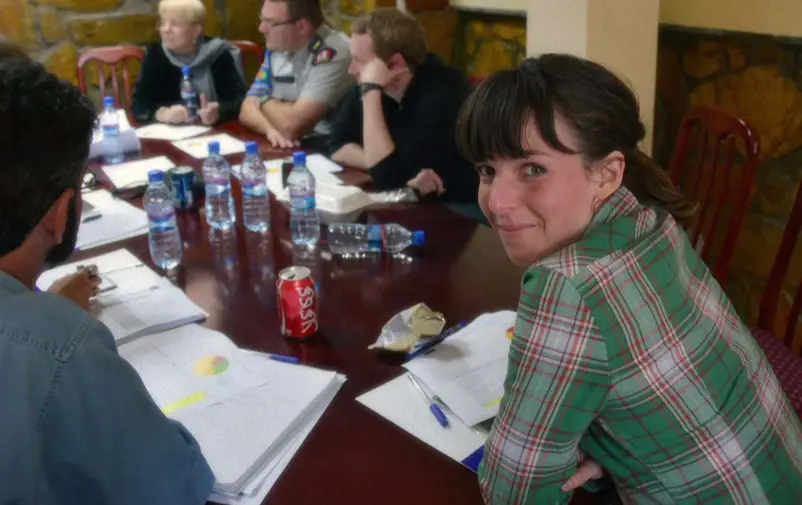
The 1325 Scholarship was established in memory of gender equality expert and peacebuilder Zaida Catalán.
– At the ministry for gender in South Kivu we work to make sure that the national laws on equality are being implemented in our province. We also ensure that international conventions on the rights of women, ratified by the DRC, are being applied. We focus on the prevention of sexual and gender-based violence. During the war, sexual violence was being used as a weapon. Now it is a part of society and everyday life, it remains a problem in the entire country. We often cooperate with local traditional leaders to create change. It is important to get support from the leaders in the villages in order to change old customs that are harmful.
– It could be forced marriages, for example. Girls that are being married off by their families, or grown women that are forced to marry the brother of their husband when the husband dies. It is also about access to resources; boys getting to go to school while girls are being kept at home. We try to map out problems and inequalities and then try to act upon them.
– I wanted to be a candidate in order to further strengthen my capacity within the area of women, peace and security. It is the area within which I work, after all. I wish to bring some useful skills home with me. I also believe that the programme is a good opportunity to exchange experiences. Between FBA from Sweden and us, the Congolese participants, and between all the participants coming from different organizations. Learning from those who have succeeded in their work is always helpful.
– We do have good legislation, we just have to make sure it is being implemented. The inclusion of women in the work for peace and reconciliation is imperative. In South Kivu we have already made more progress than in many other provinces, one reason is that we have a very engaged provincial minister of equality. He is the only male provincial minister of equality by the way, in all the other 25 provinces the minister of equality is a woman. We have managed to establish a model in South Kivu where all people working to eradicate sexual violence and to strengthen women’s participation in issues concerning peace and security collaborate in special committees. People working for the authorities, like me, cooperate with people from international organizations, civil society organizations, the army and other actors. Collaboration takes you far. The mutual commitment and ownership also ensures that the work will continue even if the current politicians are replaced in the next elections. It guarantees that the work on those issues will go on.
MORE FROM HOME
Are you a young peacebuilder at the beginning of your career with a strong commitment to women, peace and security? Do you have experience working in this field in the Democratic Republic of Congo or Afghanistan and want to take your commitment to the next level? Then you have the opportunity to apply for the 1325 scholarship for 2026.
2025-11-06 15:30FBA has both increased and adapted its work in Ukraine in the wake of Russia's invasion.
FBA in UkraineKlara Grenhagen works as a specialist at FBA's Africa unit with a focus on dialogue, reconciliation and peace processes.
More about our expertsFBA is part of Sweden’s development aid within the area of peace and security
Read more about the countries where we work